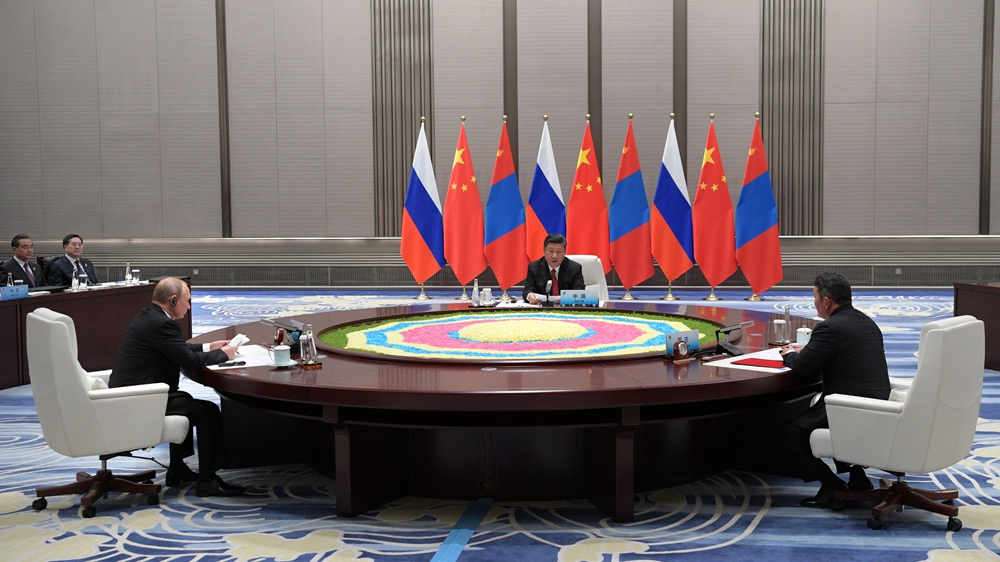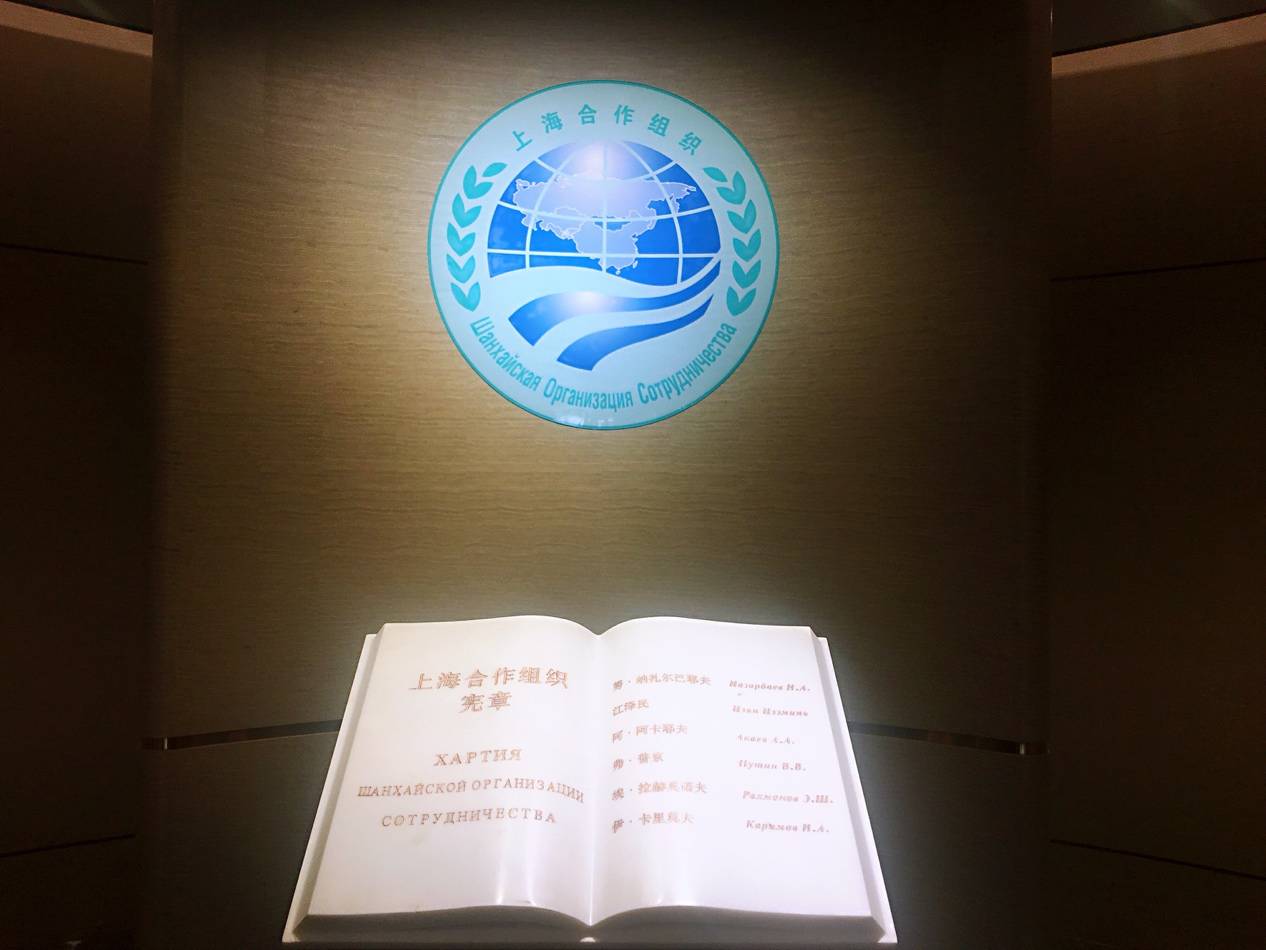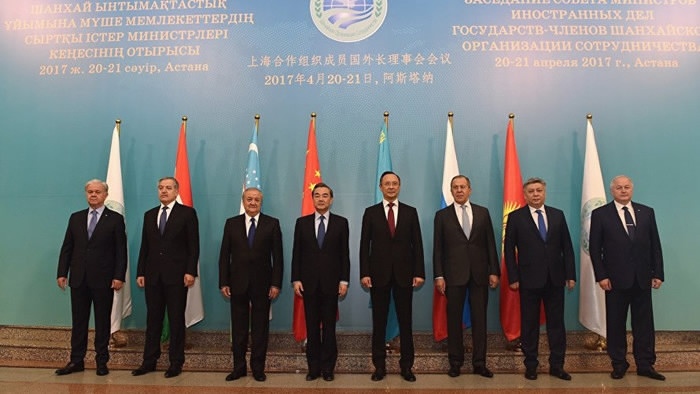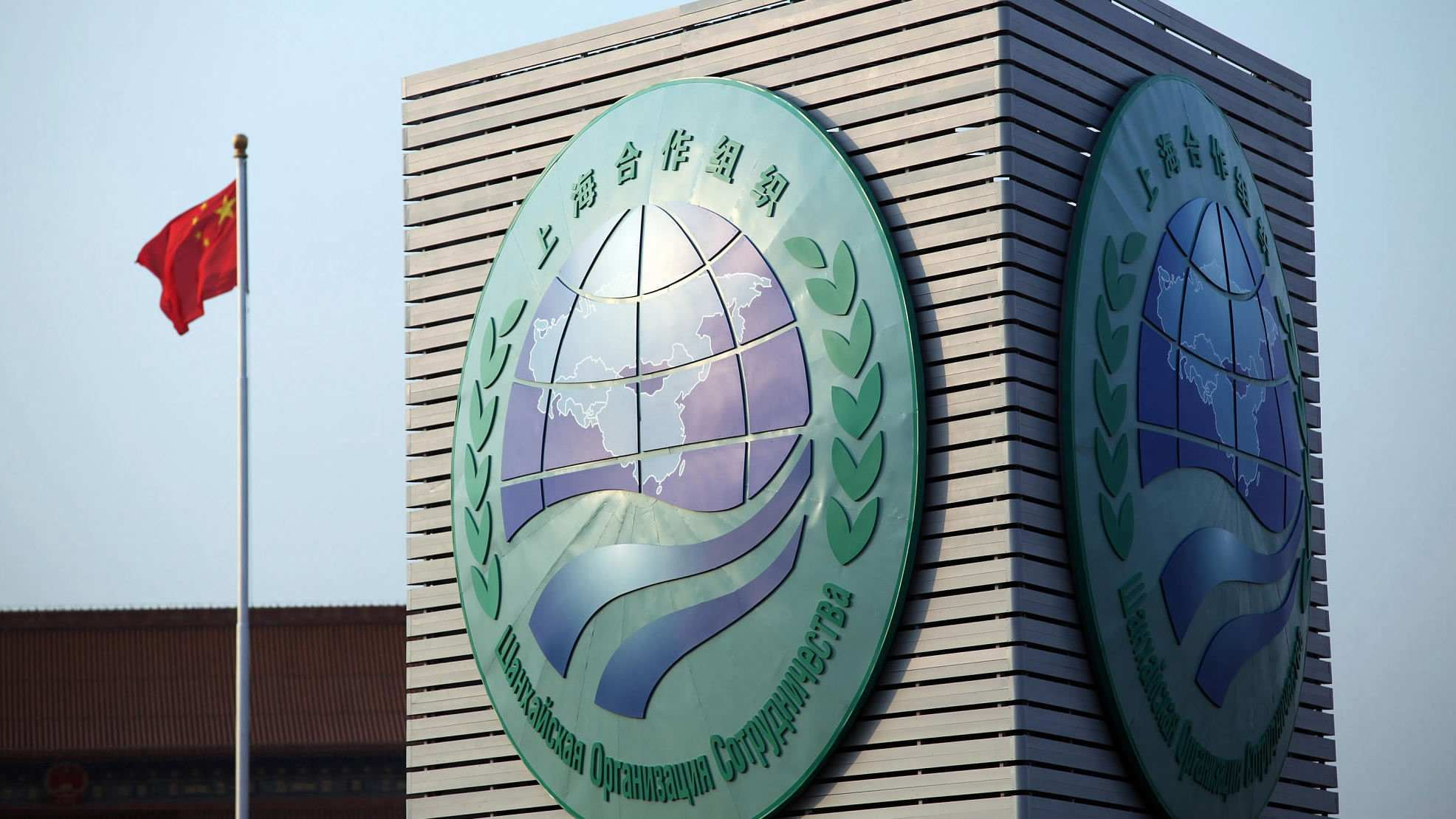Editor's note: Deng Hao is Secretary General at the China Center for Shanghai Cooperation Organization Studies and a senior research fellow at the China Institute of International Studies (CIIS). This article is an excerpt from his keynote speech on the 14th meeting of the SCO Forum on April 17 in Beijing. It reflects the author's opinion, not necessarily the views of CGTN.
Maintaining regional stability, promoting regional development, reforming and improving global governance are the three major tasks that the Shanghai Cooperation Organization (SCO) is facing. Under the current situation, the SCO's priority should be to increase its participation in global governance.
Why should the SCO participate in global governance
From a global perspective, the United States under the Trump administration pulled out from a series of international organizations and important international agreements, which seriously hindered the current global governance process and cast a shadow on the operation of multilateral mechanisms of global governance such as the United Nations, APEC, and the G20. The grim situation requires the SCO to stand up by increasing its participation in the global governance process in order to safeguard the existing international order.
From a regional perspective, Eurasia, where the SCO is located, is a region that lags behind in global governance and has serious governance deficits. At present, there are many governance mechanisms and initiatives in the Eurasian region where the SCO is located, which are highly competitive and even overtly antagonistic and exclusive. This is not conducive to the stability and development of the region.
In this context, the organization's systems, mechanisms, and actions should be reviewed and planned from the perspective of global governance to maximize consensus among all parties and lead the development of governance in Eurasia towards openness, inclusiveness and mutual benefit.

Chinese President Xi Jinping says that China, Russia and Mongolia should enhance coordination and collaboration within the framework of the SCO and calls for the elevation of Mongolia's ties with the SCO during the fourth trilateral meeting with his Russian and Mongolian counterparts, January 6, 2018, Qingdao, Shandong Province. /VCG Photo
Chinese President Xi Jinping says that China, Russia and Mongolia should enhance coordination and collaboration within the framework of the SCO and calls for the elevation of Mongolia's ties with the SCO during the fourth trilateral meeting with his Russian and Mongolian counterparts, January 6, 2018, Qingdao, Shandong Province. /VCG Photo
The SCO has clearly pointed out from the very beginning of its establishment that it would actively promote the establishment of a just and reasonable new international political and economic order and has made active efforts to this end.
All previous summits of SCO heads of state have concluded with clear attitudes and positions on major international issues. However, compared to security, economy and people-to-people cooperation, global governance is still a relatively weak link of SCO's internal cooperation and there is a great room for improvement. We should tap the SCO's potential in this area and give full play to the unique advantages of the SCO.
Favorable conditions for the SCO to participate in global governance
At present, the SCO has many favorable conditions for increasing its participation in global governance.
First of all, the membership expansion has greatly enhanced the SCO's weight and influence in the global governance system, providing sufficient confidence for the SCO to actively participate in global governance. With the accession of India and Pakistan, the SCO has become an international organization in the Eurasian region that has the largest territory, the largest population and great potential in the world.
At present, the SCO includes China, Russia and India, the three major emerging powers. The member states, observer states and dialogue partners of the SCO are all developing countries and emerging economies. All parties have a broad consensus on global governance issues, which makes the SCO an important force to be reckoned with in the process of global governance and plays an active role in the new era of global governance.

The Charter Hall of the Shanghai Cooperation Organization's (SCO) Secretary building. /CGTN Photo
The Charter Hall of the Shanghai Cooperation Organization's (SCO) Secretary building. /CGTN Photo
Secondly, as a pioneer of global governance, the SCO's theory and practice have laid a solid foundation for it to increase its participation in global governance. The SCO is an innovative organization, whose prominent feature is the obvious diversity and huge differences in politics, economy and culture among its member states. Following the "Shanghai Spirit," adhering to the principles of non-interference in internal affairs and equality between large and small countries, and upholding the principles of non-alignment, non-confrontation and non-targeting of third parties, the SCO has successfully realized coexistence and common prosperity in a diverse and heterogeneous region.
The path for the SCO to increase its participation in global governance
First of all, the SCO should further improve its theoretical framework and conceptual innovation. The SCO adheres to the principles of non-alignment, non-confrontation and non-targeting of third parties and advocates for mutually beneficial cooperation. We should incorporate the innovative governance concept of the SCO into the value system of global governance.
Secondly, the SCO should pay more attention to global issues. At present, it is necessary to focus on the developmental issues that are of common concern to all parties and strive to make more "SCO voices" heard in global economic governance. Considering the necessity of a WTO reform, it is suggested to issue a special joint statement in this year's summit document to clarify the SCO's principled position on the reform. Meanwhile, the SCO should strengthen ties with other multilateral organizations by working closely with various international organizations including the United Nations, IMF and APEC.

India and Pakistan have been given the green light for full membership in the SCO after the meeting of the SCO Council of Foreign Ministers in Kazakhstan's capital, Astana, April 20, 2017. /VCG Photo
India and Pakistan have been given the green light for full membership in the SCO after the meeting of the SCO Council of Foreign Ministers in Kazakhstan's capital, Astana, April 20, 2017. /VCG Photo
Thirdly, regional governance is currently the focus of SCO's participation in global governance. The strength and influence of the SCO are not enough for it to play a leading role in global governance. It's more realistic for the SCO to start with leading the regional governance.
Finally, there is a need for the SCO to effectively improve its own capacity in terms of global governance. We must guide the SCO to upgrade its mission and vision. At the Shanghai Cooperation Organization 2018 Summit in Qingdao, President Xi Jinping put forward the "five-pronged visions in development outlook."
"We should uphold innovative, coordinated, green, open and inclusive development. We should pursue common, comprehensive, cooperative and sustainable security. We need to promote open and inclusive cooperation for win-win outcomes. Equality, mutual learning, dialogue and inclusiveness between cultures should be championed, and we should adhere to extensive consultation, joint contribution and shared benefits in global governance," he said.
This is a new interpretation and summary of the "Shanghai Spirit." It elevates the SCO's vision to a new level. These visionary concepts will help the SCO to play a greater role in global governance.
(If you want to contribute and have specific expertise, please contact us at opinions@cgtn.com)





